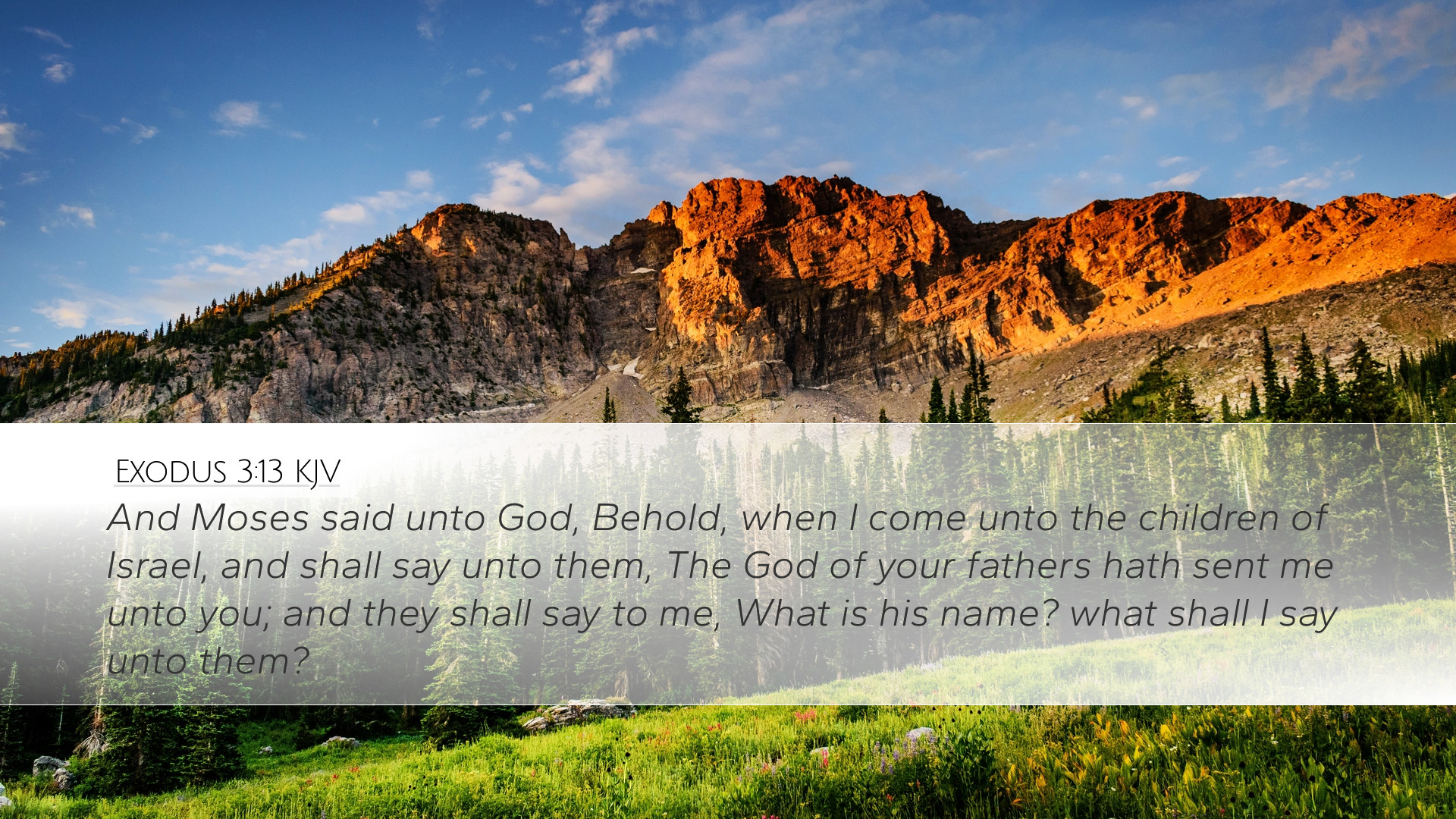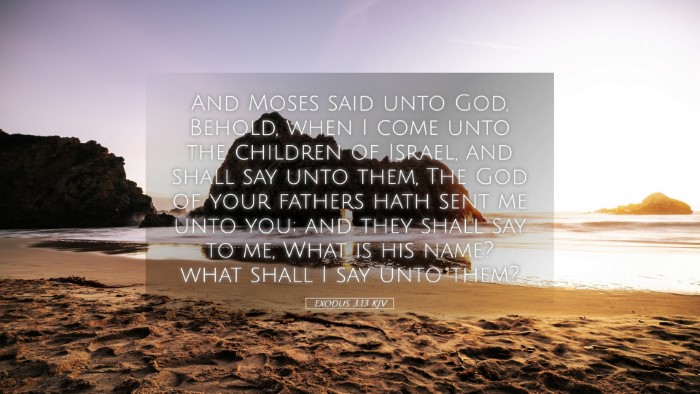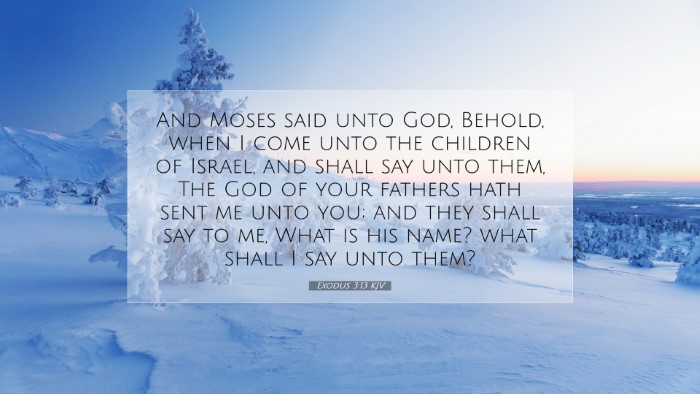Exodus 3:13 Commentary
Verse Overview: Exodus 3:13 presents a pivotal moment in the calling of Moses, where he questions God about His identity and how he should respond to the Israelites when they inquire about God’s name. This moment reflects the deep theological implications of divine identity and revelation, essential for both leaders and followers of faith.
Contextual Background
The Book of Exodus narrates the story of Israel's deliverance from Egypt, focusing on Moses as the chosen instrument of salvation. Prior to Exodus 3:13, Moses encounters the burning bush, where God reveals His intention to liberate the Israelites. Understanding the historical and cultural background of this verse is crucial for grasping its significance.
Theological Insights
- The Nature of God's Name: God’s response to Moses' inquiry about His name—"I AM WHO I AM" (Ex. 3:14)—indicates His self-existence and eternal nature. Matthew Henry notes that God’s name reveals His unchanging character and serves as a foundation for the faith of Israel.
- Divine Revelation: Adam Clarke emphasizes that God's name is a profound mystery, reflecting both His transcendence and immanence. God's subsequent declarations serve to establish His relationship with His people, underscoring that He is not a distant deity but one deeply involved in their lives.
- Assurance in Calling: Albert Barnes comments on the reassurance Moses receives through God’s revelation. Understanding who God is equips Moses to face the challenges ahead. This directly relates to anyone in ministry or leadership, emphasizing the importance of knowing God’s character in fulfilling one’s calling.
Key Themes
- Identity and Authority: Moses’ question reflects a common human need: assurance of divine authority. Clarke notes that the identity of God plays a crucial role in empowering leaders and believers to act upon their faith.
- God’s Promise of Presence: God's introduction of Himself is not merely a name but a promise—He will be present with His people. Barnes asserts that this promise serves as a comfort and a source of courage for Moses as he embarks on a significant mission.
- Faith and Obedience: The dialogue in this exchange highlights the necessity of faith in responding to God’s call. Henry points out that the understanding of God's identity compels obedience, as Moses must transition from questioning to action based upon who God is.
Application for Modern Readers
This verse challenges contemporary readers—be they pastors, students, or theologians—to understand their own response to God’s calling. It poses critical questions regarding identity, purpose, and reliance on God’s character in ministry and life.
- Understanding God’s Nature: As believers, it is essential to deepen our understanding of God's unchanging nature. In times of uncertainty, recalling "I AM" can provide strength and reassurance.
- Embracing Our Call: Like Moses, individuals must confront their fears and doubts about their divine appointments. Knowing who God is can embolden responses to His call.
- Communicating God’s Identity: How we present God to others reflects our understanding of Him. A clear grasp of His name and nature is crucial for effective ministry.
Conclusion
Exodus 3:13 does not simply serve as a historical account; it invites deep theological reflection on God’s identity and His call to humanity. Through the insights from various commentaries, we see a layered understanding of how God reveals Himself and the implications for action, leadership, and faith. This verse encourages all believers to embrace their knowledge of God as they navigate their own spiritual journeys.


